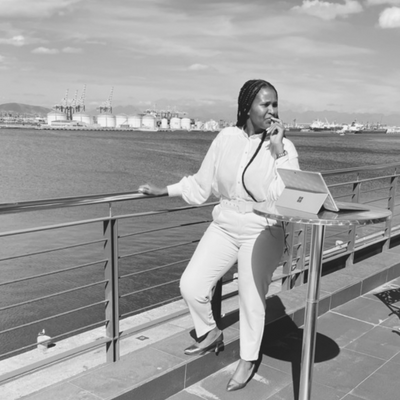1. You have extensive experience as an HSE and Sustainability Manager, how has the landscape changed since you started?
It is always evolving, policies and regulations are changing. Sustainability is slowly becoming a license to operate. Progress has been made at both global and organisational levels. The nearly global acceptance of the UN SDGs offers a unified context for organizations to develop and advance their own sustainability goals and efforts. The SDGs provide targets that are applicable to governments, civil society, and the private sector. While not every goal and target will be applicable to every organization, a number of organizations, such as the company that I work for, are viewing the SDGs as an opportunity for developing strategy, accountability, and innovation.
2. Can you name two recent regulation updates that have contributed towards the complexity of the HSE and Sustainability environment?
For global climate change laws, demand is a key driver of the sustainability system. The environmental sector has linked to sustainability through demand and has showed how going beyond compliance is a smart business decision. Although not recent, I believe that the National Energy Act 2008 & Disaster Management Act ( No.57) add complexity into HSE & Sustainability.
3. What advice would you give to other HSE and sustainability managers?
It is critical that you build a diverse circle of advisors because it is not easy to introduce change in organisations. You need to surround yourself with a variety of viewpoints, ideas, and temperaments as they build up a mental template of how the cogs and wheels of the organisation turn – and at what speed. This is important as your role will often require more in the way of advocacy instead of ‘power’.
This role is still an evolving one, and dealing with many different kinds of people can present its challenges. There will be barriers to overcome, complexity to unpick, and mistakes to be made. But whatever your experience, just remember the common purpose, and remain cool, calm and collected whenever you dive into discussions from social governance to material compliance. It is a long game, and resilience is critical to adapt to changing conditions over time.
As a leader, you need to own the narrative and be accountable, we need to be able to articulate the benefits and risks in a way that makes sense. If you don’t act with accountability, then you can’t expect others to take personal ownership of their professional roles and to be transparent in everything that they do.
Make sure to really listen to concerns raised by others around you. It might be a concern that can be overcome, but it might also be a nuance that you wouldn’t have picked up on yet. You need to practice active listening, provide feedback, give support and communicate clearly.
By undertaking an MBA in Energy and Sustainability I learnt about the fundamentals and key decision-making practices that take place in all business functions, within an energy and sustainability context and how to apply these at a strategic level. It allowed me to apply my knowledge, leadership and strategic thinking skills within a practical context. Organisational behaviour was an interesting module, it explained the process to identify and manage internal and external issues and opportunities that are significant to a business, using a specific set of assessment tools.
At the start of my career I was passionate about chemical engineering and chemical reactions. As time went by I was introduced to design and understanding process control, which I really enjoyed. When I started in oil and gas at Engen, I realized that I enjoy equipment and on top of equipment I enjoyed understanding how it operates. I found it very interesting understanding why product should be kept in particular ways, asset integrity.
Now, I am able to understand and evaluate the risk or the hidden hazards behind every situation/project/operational task, it enabled me to ask the right questions on the projects I’m involved in.
So many students today lack confidence and believe that they would not be able to succeed in a career of engineering. They fall into a mindset of being intimidated by stereotypes and not being ‘the best’ in class. The mindset and understanding of stereotypical engineering candidates has to change. We need more people to share their own stories of succeeding in engineering, to motivate the youth that it can happen as long as you put your mind to it and keep focused on your goals. The youth of today must dare to ask questions, to find information and to have confidence in themselves that they are able.
From the moment I met COE Founder, Gijsbert Bakker, I enjoyed his authenticity and approach to life and work. I have met a lot of great people through COE and its helped me to grow my own network. Being a member at COE is like an ice breaker in the industry, I’ve met so many people who know of Club of Engineers, it’s always a good way to start a conversation.
I am proud to work for a company that celebrates diversity in the workplace above and beyond. My company values its customers, employees, and the environment. VTTI attracts/looks for people who are ambitious. creative and kind. I believe in our vision and mission. It means a lot to me to contribute to this team and it feels good to work for an organization that invests in its people and encourages growth.
